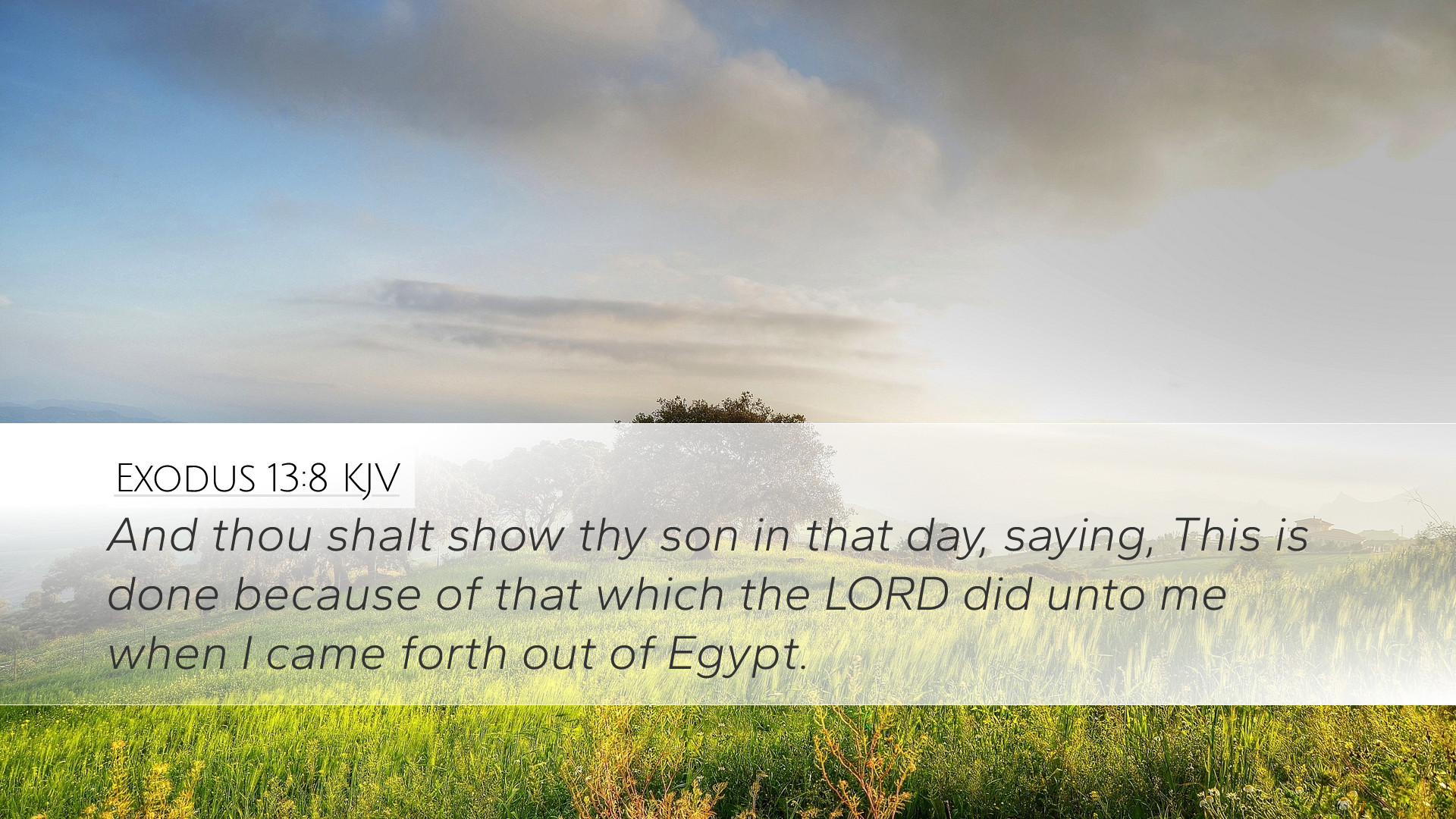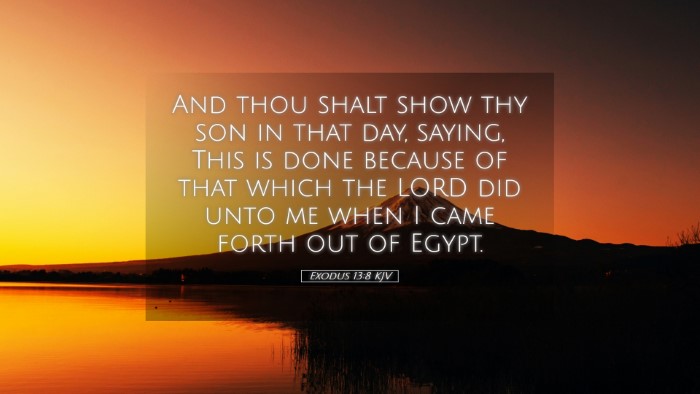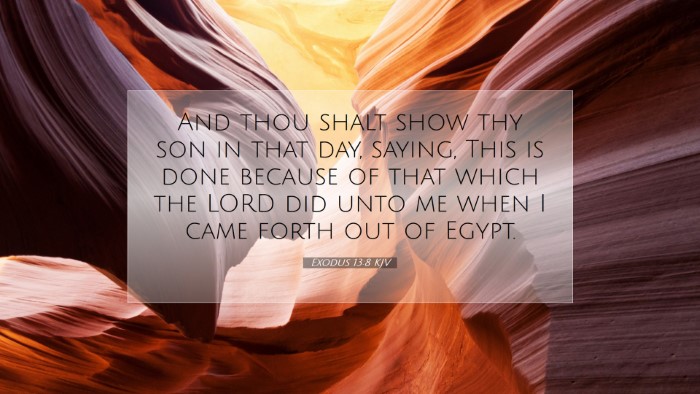Exodus 13:8 - Bible Commentary
Verse: "And thou shalt show thy son in that day, saying, This is done because of that which the Lord did unto me when I came forth out of Egypt."
Introduction
The passage of Exodus 13:8 serves as a critical reminder of the covenantal relationship between God and His people. It emphasizes the importance of remembering God's deliverance and instructing future generations about His deeds. In this commentary, insights from Matthew Henry, Albert Barnes, and Adam Clarke will be synthesized to provide a comprehensive understanding of this verse’s significance.
Contextual Background
Exodus is the second book of the Bible, detailing the Israelites' deliverance from Egyptian bondage. Chapter 13 serves as a transition from the Passover and the Exodus to the instructions regarding consecration and remembrance. This verse particularly highlights the need for instruction and remembrance, foundational to the Jewish faith and practice.
Matthew Henry's Insights
Matthew Henry emphasizes the vitality of teaching children about God's deliverance as foundational to their faith. He argues that:
- Historical Awareness: It is essential to communicate the historical facts of the Exodus to the next generation.
- Personal Testimony: The father’s declaration is a personal reflection on God’s action, reinforcing the relationship between personal faith and collective history.
- Liturgical Instruction: This instruction reflects a broader liturgical practice, promoting remembrance through annual celebration.
Albert Barnes' Commentary
Albert Barnes provides a detailed analysis of the communicative aspect of this verse. His commentary sheds light on several important facets:
- Intergenerational Transmission: The command to show one’s children informs a broader principle of passing down faith through generations.
- Significance of Remembrance: The act of remembrance serves not only to foster gratitude but also as a grounding in the historical faithfulness of God.
- Educational Role: Parents have a divine mandate to educate their children about the past workings of God, suggesting that remembrance is a communal and familial endeavor.
Adam Clarke's Exegesis
Adam Clarke, known for his detailed exegesis, draws attention to the depth of the observation made in Exodus 13:8:
- Covenant Reminder: The act of remembering serves as a reminder of the covenant between God and Israel, where divine actions are linked with human responsibility.
- Spiritual Identity: Clarke points out that through remembrance, individuals and communities develop a spiritual identity that is rooted in God’s historical acts.
- Family Worship Practices: The instruction implies a structured approach to family worship, suggesting a practice of consistent conversation about God’s deliverance.
Theological Implications
The theological depth of Exodus 13:8 can be examined through several lenses:
- Divine Intervention: It underscores the centrality of God’s intervention in human history, particularly in the life of His people.
- Transgenerational Faith: Faith and memory are not merely personal affairs but communal and familial experiences that shape collective identity.
- Understanding and Worship: Proper understanding of Biblical events leads to enhanced worship and a closer relationship with God.
Practical Applications
For pastors, students, and theologians, this verse calls to action in several poignant ways:
- Teaching Moments: Leverage family-based teaching to share God’s faithfulness and exhort future generations towards faith.
- Remembrance Rituals: Create or reinforce rituals within communal worship that celebrate and remember God's deeds.
- Faith as Continuity: Encourage the understanding that faith is a journey that continues through generations, and individual participation is vital to its continuity.
Conclusion
Exodus 13:8 is more than an historical reminder; it is a theological call to action. The insights gathered from Matthew Henry, Albert Barnes, and Adam Clarke showcase the imperative to pass on the stories of God’s deliverance to future generations. The implications of this verse resonate today, urging believers to remain steadfast in remembering and communicating the greatness of God’s deeds in their lives.


